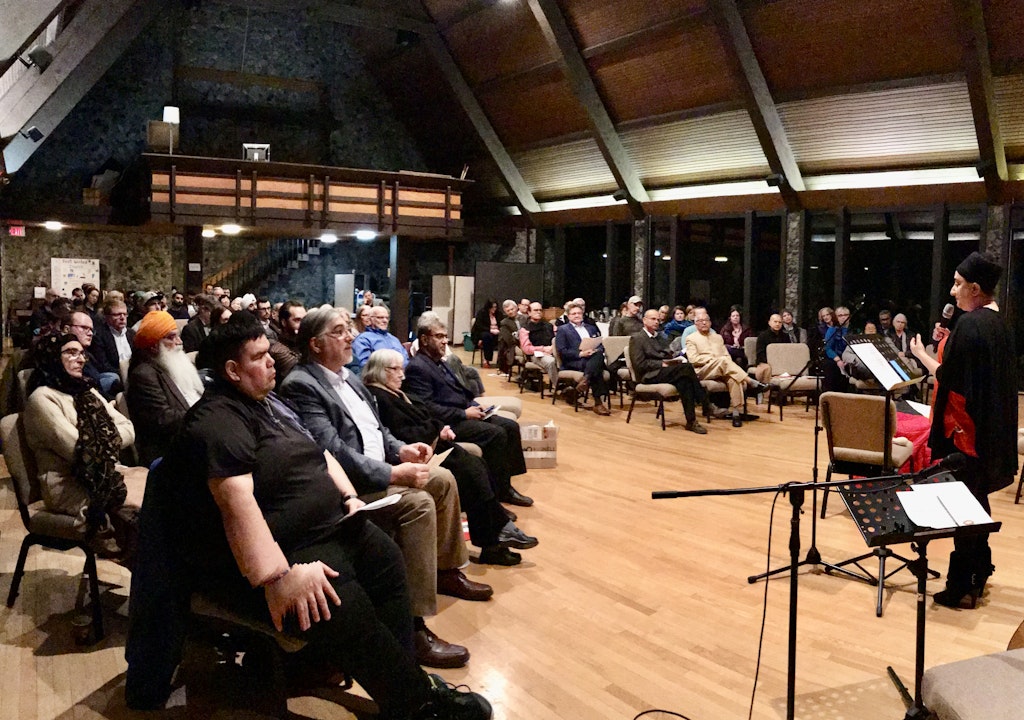The concept of life after death has perplexed humanity for centuries. What lies beyond the veil of mortality? Are we merely ephemeral beings, or is there a profound reality that awaits us? The Baha’i teachings grapple with these existential inquiries, offering a unique framework that seeks to illuminate the hidden nature of life after death. Understanding the Baha’i perspective can provide both solace and insight as we navigate the complexities of existence.
At the crux of Baha’i belief is the understanding that life continues after physical demise. This perspective deviates significantly from materialistic viewpoints, which propose that death signifies the absolute cessation of existence. Baha’is embrace a more spiritual interpretation, one asserting that the soul is an enduring entity, transiently inhabiting the corporeal form during its earthly journey. This belief is founded on the premise that the soul is a reflection of the divine, possessing an inherent potential that transcends worldly confines.
Consider for a moment the profound implications of this belief. Imagine looking at life as both a continuous journey and a multifaceted tapestry woven with threads of experiences, lessons, and spiritual growth. The Baha’i teachings emphasize that the world of the spirit operates on a distinct plane, often drawing parallels to the physical realm but in a purer, more exalted form. It posits that the soul, liberated from the physical body, embarks on a journey through the dimensions of existence, advancing towards ever more sublime realities.
The notion of ascension post-death introduces the principle of the “next world.” Within Baha’i theology, this world is not a spatial locality but a metaphorical expression of spiritual proximity to God. One’s experiences in this realm are contingent upon earthly actions, intentions, and overall character development. Thus, one might pose the playful question: if our actions and thoughts are akin to seeds planted during our earthly lives, what kind of garden will we cultivate in the afterlife?
This leads to the pivotal Baha’i teaching on the significance of deeds. Every thought, word, and action contributes to the essence of one’s spiritual identity. Baha’is believe in the inherent moral responsibility each individual possesses to cultivate virtues and engage in righteous conduct. This is not merely for the sake of societal harmony but as a means of nurturing the soul’s potential. The afterlife is perceived as a realm of accountability — a continuation where souls attest to their earthly endeavors and the spiritual fruits borne of them.
The trajectory of the soul is further elucidated through the lens of “spiritual progress.” In the Baha’i conception, the afterlife does not function as a static reward system but as a dynamic journey of advancement. Each soul, upon shedding the corporeal form, enters a phase of purification and growth, fostering deeper understanding and connection with the divine. This process resembles a grand continuum, wherein spiritual knowledge and proximity to God progressively unfold;
thereby necessitating a life of deliberate intention and virtuous action.
Furthermore, the Baha’i teachings propose that our understanding of the afterlife is not only shaped by individual actions but is also influenced by the communal and collective consciousness. The interconnectedness of humanity is a recurrent theme in Baha’i thought, emphasizing that spiritual evolution is symbiotic. The resonance of collective prayers, shared experiences, and actions transcend individual journeys, creating a profound impact on the spiritual realm. This notion challenges the individualistic perspective common in many contemporary discourses, inviting a more holistic view of existence.
In grappling with the concept of life after death, one must also confront the inherent uncertainties associated with it. Certainty is often elusive when it comes to metaphysical dimensions. Baha’i teachings encourage an embrace of this uncertainty, framing it not as a limitation but as an invitation to cultivate faith. Faith, in this sense, is not blind belief but a conscious acceptance of divine wisdom beyond human comprehension. It is complemented by reason and an understanding of the multifaceted nature of existence.
A duality exists within the understanding of life after death in Baha’i theology: it incorporates both personal and collective elements. While individuals are held accountable for personal actions, there is a profound acknowledgment of the role of community and interdependence. This duality presents a challenge: how to reconcile personal spiritual ambitions with the collective needs of humanity? This intricate balance forms a cornerstone of Baha’i ethics, driving believers toward both individual perfection and the betterment of society.
Moreover, the teachings advocate for the exploration of spiritual realities while emphasizing the necessity of practical action in the material world. Engaging in humanitarian efforts, promoting justice, and nurturing relationships can serve as conduits to preparing for the afterlife. Acknowledging that earthly existence is not merely a transient phase but an integral part of the soul’s journey enhances our understanding of the Baha’i perspective on life after death.
In conclusion, the Baha’i view of the hidden nature of life after death invites a multi-dimensional reflection on existence. The interplay between the soul and the divine, the significance of individual and collective actions, and the embrace of uncertainty all contribute to a comprehensive understanding of the subject. By contemplating these teachings, one can develop a deeper appreciation for the interconnectedness of life, mortality, and the eternal journey. Ultimately, the Baha’i perspective not only sheds light on what lies beyond but also compels individuals to live with purpose, intention, and hope, forging a path that resonates through both the physical and spiritual realms.
